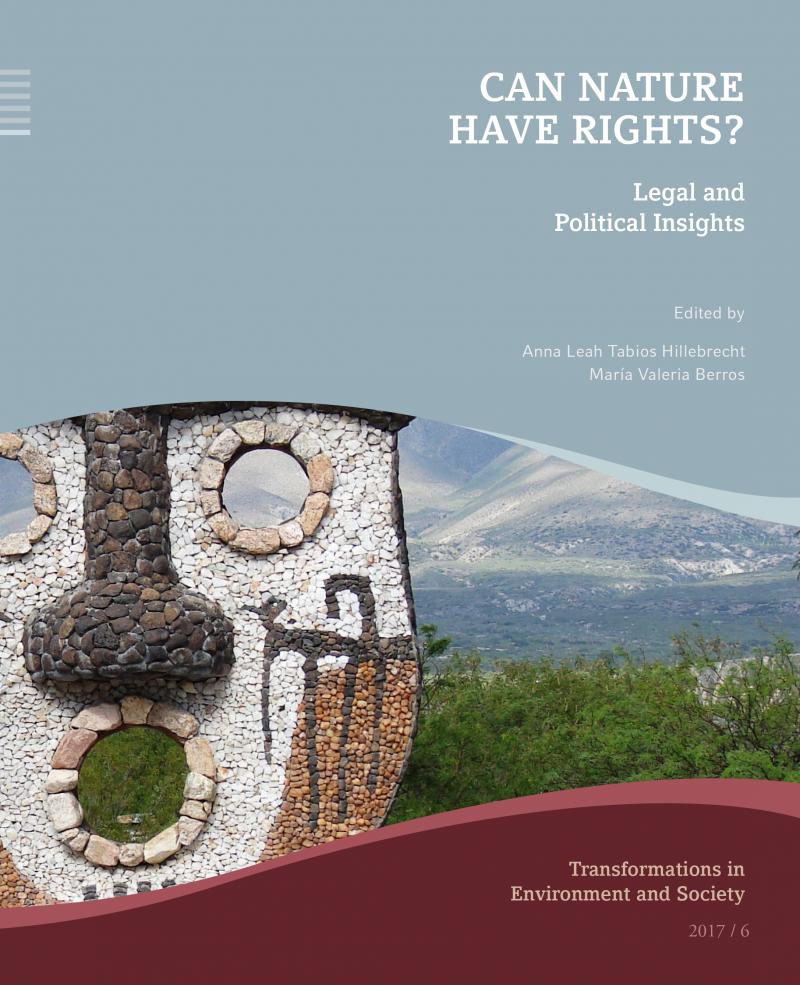About this issue
In 2008, Ecuador became the first country to acknowledge Nature as a rights holder within its constitution. In a world where Nature is primarily treated as a resource, the Rights of Nature concept and its emerging application prompts important questions: What are the theoretical, logistical, and cultural challenges of granting Nature rights? Who can represent and defend nature and why? Is the concept a necessary progression towards an environmental future? By presenting legal theory, politics, and case studies, the authors of this volume open up an accessible and multidisciplinary dialogue to explore the fundamental question: Can Nature have rights?
How to cite: Tabios Hillebrecht, Anna Leah and Berros, María Valeria (Eds). “Can Nature Have Rights? Legal and Political Insights,” RCC Perspectives: Transformations in Environment and Society 2017, no. 6. doi.org/10.5282/rcc/8164.

Content
- Introduction
Towards a Non-Anthropocentric Understanding of Nature
- Who Needs Rights of Nature? by Jens Kersten
- Disrobing Rights: The Privilege of Being Human in the Rights of Nature Discourse by Anna Leah Tabios Hillebrecht
- Rights of Nature and the Precautionary Principle by Atus Mariqueo-Russell
Rights of Nature in Present-Day Cultures
- Courting Nature: Advances in Indian Jurisprudence by Rita Brara
- Defending Rivers: Vilcabamba in the South of Ecuador by María Valeria Berros
- River Rights and the Rights of Rivers: The Case of Acheloos by Sophia Kalantzakos


